The Best Blues Singers Of All Time Ranked
The term Blues may have come from “blue devils”, meaning melancholy and sadness; an early use of the term in this sense is in George Colman’s one-act farce Blue Devils (1798). The phrase blue devils may also have been derived from a British usage of the 1600s referring to the “intense visual hallucinations that can accompany severe alcohol withdrawal”. As time went on, the phrase lost the reference to devils, and it came to mean a state of agitation or depression. By the 1800s in the United States, the term blues was associated with drinking alcohol, a meaning which survives in the phrase blue law, which prohibits the sale of alcohol on Sunday. Though the use of the phrase in African-American music may be older, it has been attested to in print since 1912, when Hart Wand’s “Dallas Blues” became the first copyrighted blues composition. In lyrics the phrase is often used to describe a depressed mood. In 1827, it was in the sense of a sad state of mind that John James Audubon wrote to his wife that he “had the blues”. The phrase “the blues” was written by Charlotte Forten, then aged 25, in her diary on December 14, 1862. She was a free-born black woman from Pennsylvania who was working as a schoolteacher in South Carolina, instructing both slaves and freedmen, and wrote that she “came home with the blues” because she felt lonesome and pitied herself. She overcame her depression and later noted a number of songs, such as “Poor Rosy”, that were popular among the slaves. Although she admitted being unable to describe the manner of singing she heard, Forten wrote that the songs “can’t be sung without a full heart and a troubled spirit”, conditions that have inspired countless blues songs. Here are all of the best Blues Singers of all time ranked.
See more: The Best Glam Metal Guitarists Of All Time Ranked
See more: The Best Glam Metal Bassists Of All Time Ranked
20. Ray Charles

“The legendary Ray Charles was born in Albany, Georgia in 1930. When he was only six years old, Charles was rendered blind due to glaucoma. At fifteen, he left school and started playing for dance bands around Florida. He dropped his last name because he did not want to be confused with the famous boxer Sugar Ray Robinson. From there, Charles would enjoy one of the most successful musical careers of the 20th century and beyond. Throughout his storied career, he won seventeen Grammys, a Grammy Lifetime Achievement Award, and the National Medal of the Arts.
19. Joe Bonamassa

“Joe Bonamassa is a contemporary blues-rock flagbearer who has created a huge deal of musical work. With 13 completed studio albums, a number of live CDs and DVDs, and collaborations with Beth Hart and Black Country Communion, Bonamassa has undoubtedly produced incredible music. Bonamassa is regarded as one of the best blues guitarists in the world today, keeping the exquisite genre very much alive.”
18. Albert King
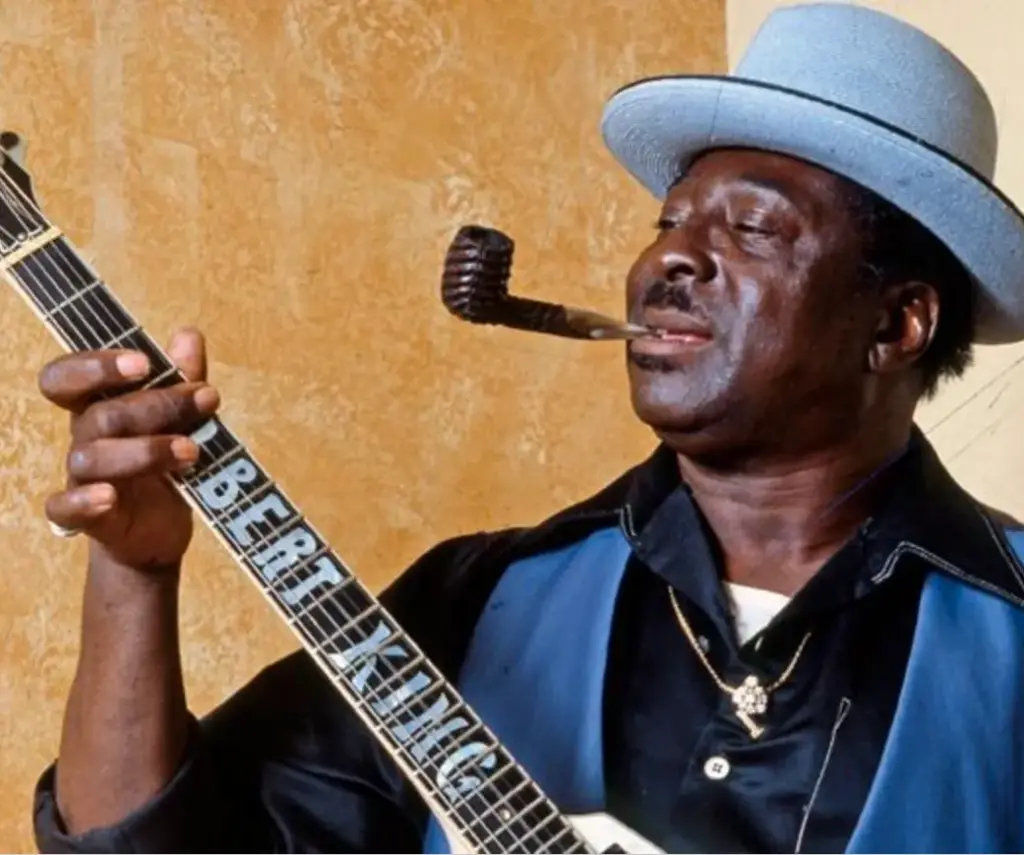
“Albert Nelson was born in 1923 on a cotton plantation in Mississippi. He was one of twelve siblings born to amateur guitarist Will Nelson. By the early 1950s, he’d uprooted to Gary, Indiana where he played drums for Jimmy Reed, one of the most popular blues musicians of the era. He moved to St. Louis Missouri in 1953 and started recording for two different record labels where he churned out a handful of hit songs such as ‘Don’t Throw Your Love on Me So Strong‘ and ‘That’s What the Blues Is All About.’”
17. Willie Dixon

“Willie Dixon started his music career singing in a gospel quartet in Chicago while he was also doing amateur boxing. In 1939, he started playing the double bass and teamed up with the Big Three Trio. When the group disbanded, he worked as a house bassist and arranger for Chess Records. His upbeat style prefigured the 50s Chicago blues. Some of his best works are “I’m Ready” for Muddy Waters and “Back Door Man” for Howlin’ Wolf.”
16. Johnny Lee Hooker

“John Lee Hooker grew up learning about music under his stepfather’s influence. He moved to Detroit in his early 20s and had two day jobs followed by music gigs at night. He was later on scouted by Bernard Besman, a producer for Sensation Records. Hooker would go on to have a long, successful career as a blues musician, releasing his most successful album at 72. He was inducted into the Rock & Roll Hall of Fame in 1997.”
15. Paul Butterfield

“Born in 1942 on Chicago’s south side, Paul Butterfield spent his early years listening to jazz and blues records that belonged to his father and older brother. He soon began playing the blues himself and eventually dropped out of college to pursue his musical dreams. He got a regular gig at Big John’s Chicago blues bar and the Butterfield Blues Band was born. The band released their first studio album in 1965 called The Paul Butterfield Blues Band. But, after performing at Woodstock in 1969, the band split up and Butterfield became a bit of a recluse in the music world.”
14. Freddie King

“At a very young age, Freddie King’s mother and uncle taught him how to play the guitar. His great influence was the Chicago blues scene’s music when he was a teen. His family relocated to the Windy City in 1950, and he soon began frequenting neighborhood blues bars. He joined Federal Records in 1960 and saw some success. As he continued to record songs, Freddie finally found unparalleled success in 1961 with I Love the Woman.”
13. Johnny Winter

“Johnny Winter and his brother Edgar, both born with albinism, grew up playing music. Winter initially played the clarinet, followed by a ukulele, and then finally, a guitar. At 15, he won a talent contest and scored a recording. He then recorded music with varying labels until he signed with Columbia in 1969. He released a self-titled debut LP which gained immense traction. He would spend his musical career with multiple Grammy nominations and a Grammy Award for his Best Blues Album for Step Back in 2015.”
12. Eric Clapton
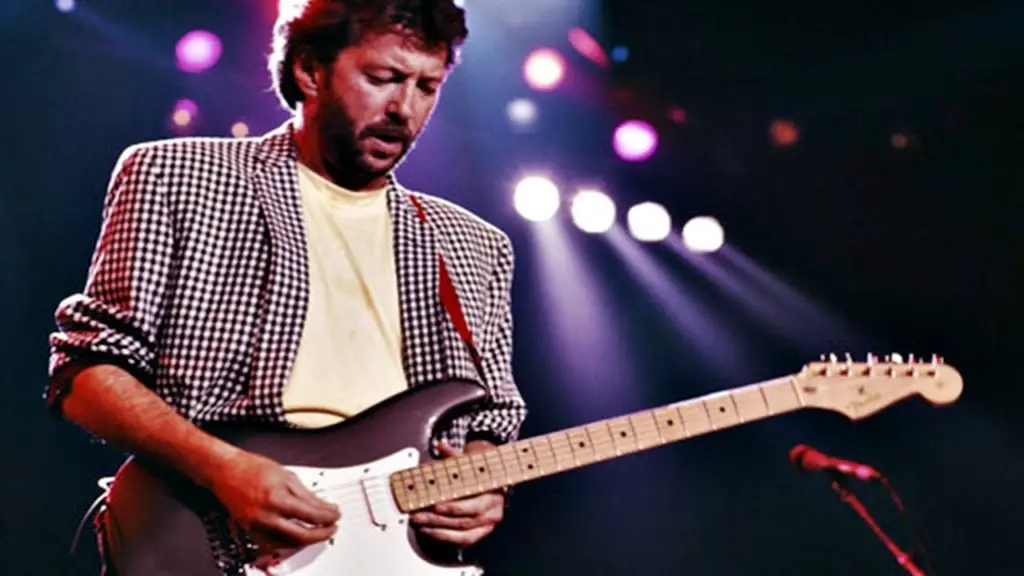
“John Mayall was the first to spot Clapton’s potential, handing the guitarist his debut studio lead in 1966 for Beano’s Ramblin’ On My Mind, and introducing a vocal that – even in his early twenties – sounded worldweary and wistful. Jack Bruce’s dominance in Cream pushed EC to the margins (even if he delivered some of their very best moments, including Badge, Crossroads and Strange Brew), but his voice only grew in resonance through the solo years, from the stripped beauty of Unplugged to the plaintive desolation of Pilgrim.”
11. Buddy Guy
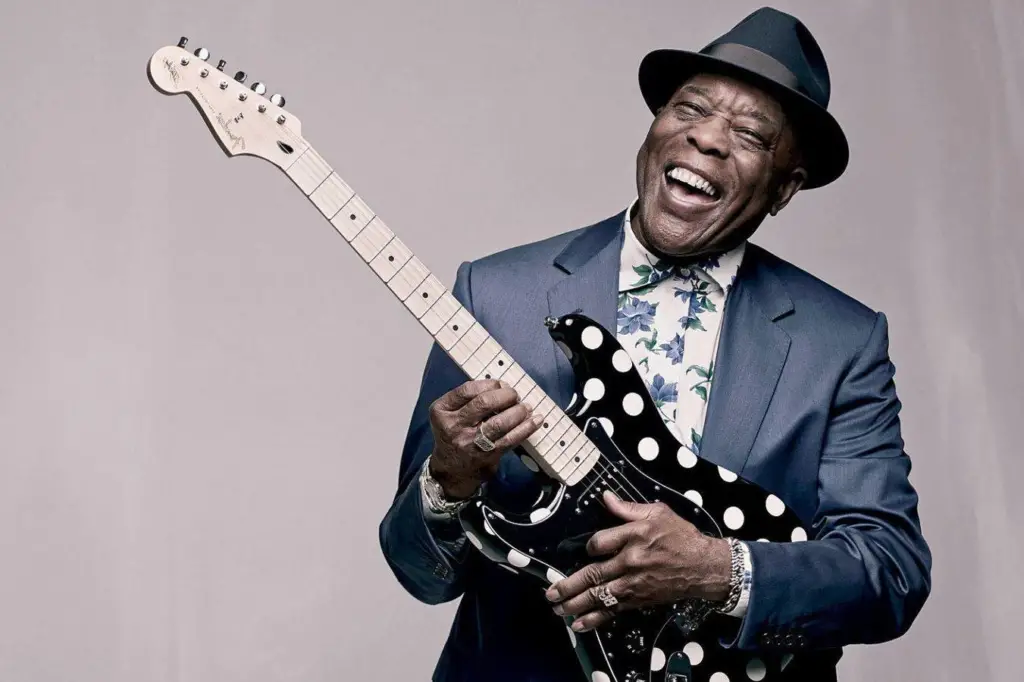
“Buddy Guy was born in Louisiana in 1936, one of six siblings born to a sharecropping family out of Lettsworth. At seven, Guy crafted a makeshift guitar out of wood, two strings, and his mother’s hairpins. By the time he was twenty-one, he took a real guitar to Chicago and joined up with other heavy hitters like Howlin’ Wolf and Muddy Waters. He has maintained a legendary career ever since. In 2012, he was awarded the Kennedy Center Honor to celebrate his lifetime contribution to American culture. He also published a memoir that same year that became a bestseller.”
10. Elmore James

“Elmore Brooks was born in 1918 in Richland Mississippi. He started playing blues early on in his life and began playing professionally under stage names like Joe Willie James and Cleanhead. By 1952, he was recording songs in nearby Jackson, Mississippi under the name Elmore James. His first popular single reached number nine on the R&B charts that same year. He continued to make more hit records over the next seven years, traveling between Chicago and Mississippi. James was diagnosed with heart disease in 1957 and took a more stationary job as a DJ in Mississippi. He continued recording until 1962 when he had to temporarily retire.”
9. Jimi Hendrix

“Born 1942 in Seattle, he was first called Johnny Allen Hendrix and then James Marshall Hendrix. Hendrix was drawn to music early on, teaching himself to play by ear. He bought his first guitar in 1958 and joined his first band soon after. By 1967, he moved to London, changed his name to Jimi Hendrix, and formed the Jimi Hendrix Experience. Their debut album, Are You Experienced? was an instant hit and is still one of the biggest rock albums of all time.”
8. Stevie Ray Vaughan

“Stevie Ray Vaughn began playing the guitar in 1961. Vaughn quit school at the age of 17 to concentrate on his music. In 1970, he started his first blues band called the Blackbird. A decade after, Vaughn was performing live in Texas clubs with a band named Double Trouble and quickly garnered popularity. The band’s two albums, Texas Flood and Can’t Stand the Weather, became such huge hits at the time. In 1990, Vaughn died in a fatal helicopter crash.
7. Bonnie Raitt

“Bonnie Lynn Raitt is an American blues singer-songwriter, musician, and activist. During the 1970s, Raitt released a series of roots-influenced albums that incorporated elements of blues, rock, folk and country. Bonnie has amazing slide guitar skills, stage presence, a wonderful voice to match that guitar playing; her style is so sassy classic.”
6. Rory Gallagher

“The late Gallagher never did anything by halves. As a graduate from the fullthrottle “take no prisoners” school of rock singing, Gallagher used his whiskey-soaked voice to full effect both in the studio and on the road, winning over blues and rock audiences alike. He might not have had the range or technique of contemporaries like Paul Rodgers, but Gallagher always sang from the heart, particularly on early hits like Tattoo’d Lady and Cradle Rock. His presence can still be felt in modern rock acts.”
5. Son House

“Son house is one of the most influential artist to have ever been born, especially concerning the blues, what this man could do without a guitar, never mind with one is truly out of this world. Go listen to songs by him such as “Grinnin’ in your Face” an “John the Revelator” where he simply sings and makes use of clapping. If you are not truly inspired in any sense of the word. The blues is not for you.”
4. Muddy Waters

“Far and away the most influential artist/musician of the Blues, and is therefore the most deserving of #1 in my opinion. Muddy grew up in the Mississippi Delta during the early years of the 20th Century and learned how to play and perform through the likes of early blues masters such as Son House and Robert Johnson. Muddy developed his sound throughout the late 1930’s through the 1950’s and came up with masterpiece blues tracks that spurred entire new genres of music, not the least of which is Rock & Roll.”
3. B.B. King
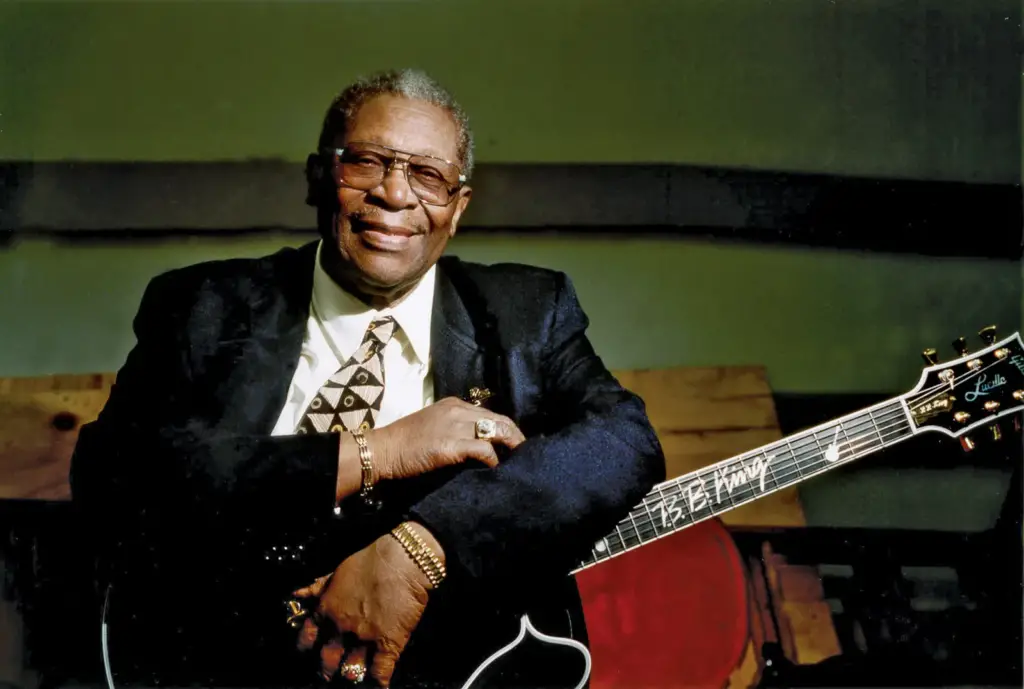
“Riley B. King, a singer and a guitarist who goes by the stage name B.B. King, took a journey to Memphis when he was 22 to begin his musical career. After he chose the name B.B. King as a catchy radio monicker in 1948, his career blossomed. King began touring nationally in the mid-50s and became more famous over the next 10 years. In 1984, the Blues Hall of Fame inducted him, and three years later, the Rock and Roll Hall of Fame”
2. Howlin’ Wolf

“Chester Arthur Burnett was born in Mississippi in 1910. He earned his nickname Howlin’ Wolf as a toddler due to his wild nature and his large frame. His parents divorced when he was young, and Burnett ended up being raised by his alcoholic uncle. He started playing guitar at eighteen and began out performing at nightclubs and house parties in Ruleville, Mississippi. In 1948, he returned from a stint in the military to start his first band.”
1. Robert Johnson

“Robert Johnson grew up with his mother in Hazlehurst, Mississippi, but eventually, he moved to Memphis to live with his father. He made a living as a traveling musician, and by 1936 Johnson caught the eye of a talent scout named H.C. Speir. He recorded a handful of his songs from the road there. These recordings became a regional hit, selling thousands of copies.”

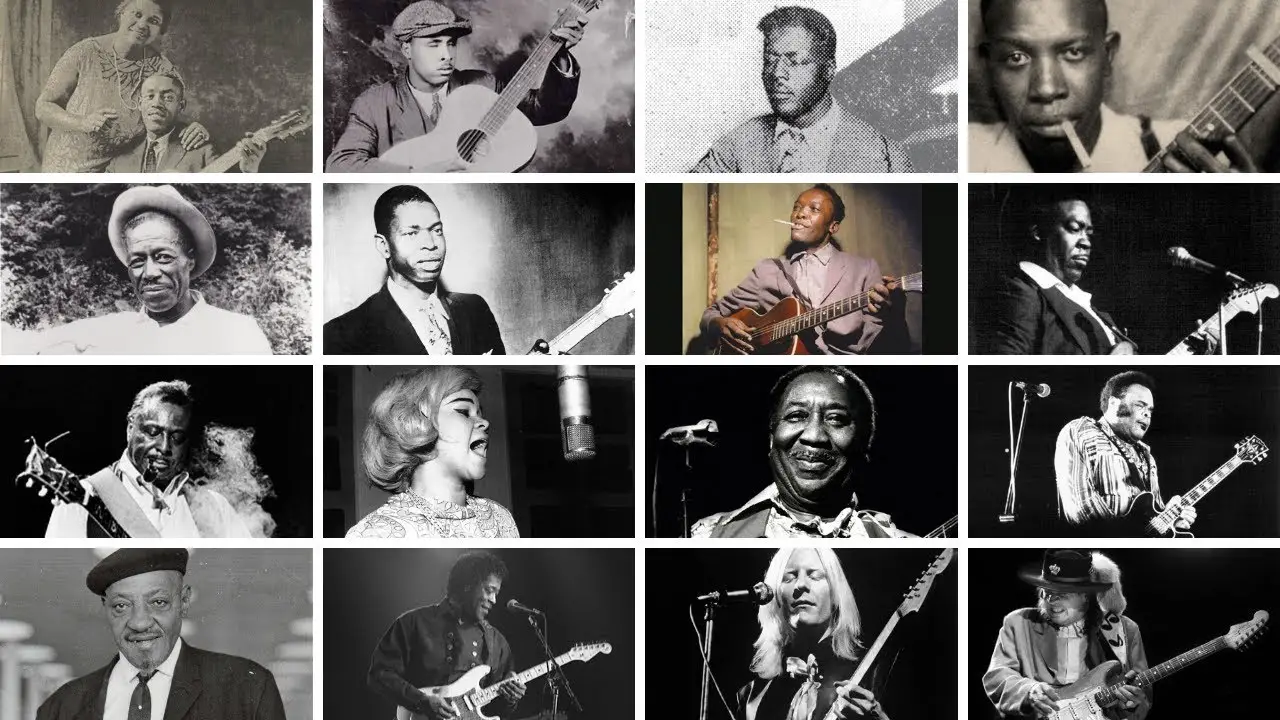
One thought on “The Best Blues Singers Of All Time Ranked”
Comments are closed.